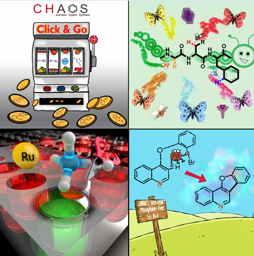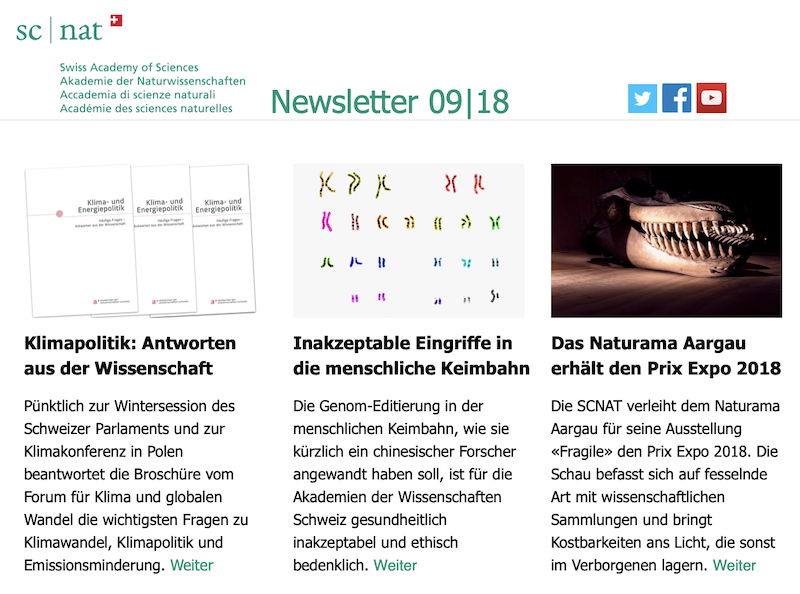EuCheMS Brussels News Updates, December 2018

Horizon Europe - continued
Negotiations surrounding the future EU research framework programme Horizon Europe are progressing although diverging conclusions are slowly being reached between the European Parliament and the Council. In addition, national ministers themselves are split on a number of central issues. At heart of the different viewpoints for Horizon Europe is that of whether to continue maintaining the notion of ‘excellence’ as the central pillar, or whether to shape Horizon Europe as a tool to help fix the research and innovation divide between western and eastern Member States. Read more about the latest progress on Horizon Europe here.
Plan S: China, petitions, events & a GDCh statement
Plan S, the plan initiated by a coalition of European funders (cOAlition S) and supported by the European Commission to encourage a rapid transition to open access publishing continues to make waves within the scientific community. From petitions, China's unexpected interest in Plan S, events in Brussels, a GDCh statement and a public consultation, we've provided you with a quick overview of the latest developments and debates. Click here for the full debrief.
Report of the 2nd Employment Survey for European Chemists is published
The report of the 2nd Employment Survey for European Chemists (ESEC2) was published on 21 November. The report, which analysed data received in 2017, delves into the employment conditions and career opportunities for chemists in Europe. Read more about the report here.
Forums and events - EuChemS attends EFSA Stakeholder Forum, European Parliament Impact Research EU event & ECHA Committee for Risk Assessment meeting
Last month saw the annual European Food Safety Agency (EFSA) Stakeholder Forum, an event which sought to stimulate and simplify dialogue between the European Agency and official stakeholders. The event also aimed to exchange views on EFSA’s ongoing work and plans for the future. The relatively new and bolstered role of academic organisations was recognised by EFSA as a positive and much needed aspect of stakeholder interaction. Full debrief of the meeting here.
EuChemS also attended the high-level conference on how research and innovation affect daily life which was held in the European Parliament. The event, which combined talks with representatives from the European Commission, European Parliament and ministers from EU Member States as well as a range of scientists, explored the major challenges we currently face, and how impact research can and should continue to be fostered in Europe. Read all about it here.
EuChemS attended the European Chemical Agency’s Committee for Risk Assessment (RAC) – 47 meeting in Helsinki in November. The RAC prepares the opinions of ECHA related to the risks of substances to human health and the environment, although final decisions are taken by the European Commission. Click here for more information.
Open Access: Plan S guidelines
A public consultation has now been opened on the Plan S guidelines. EuChemS is currently preparing a Position Paper on the topic.
Deadline: 1st February 2019
Read the full BNU newsletter here
David Spichiger, SCS
27.12.2018
Open Position @UZH: Assistant Professor Tenure Track in Next Generation Synthesis

The Faculty of Science at the University of Zurich invites applications for an
Assistant Professor Tenure Track in Next Generation Synthesis
We are seeking for candidates with an outstanding track record to build an internationally recognized research program in organic synthesis. While all areas of organic chemistry will be considered, upon equal qualifications, preference will be given to applicants with an interest in technology-driven synthesis, new molecular concepts, molecular systems engineering, «on-demand» synthesis, or new molecular frameworks. The selected candidate is expected to lead an independent research group and to participate in teaching chemistry at all levels of the BSc, MSc and PhD programs. The University of Zurich has an established program for career progression allowing promotion to associate and full professor upon successful evaluation.
The University of Zurich provides generous research support, including dedicated funds for personnel, running expenses and competitive start-up packages. Moreover, the successful applicant is expected to acquire external research funding. Zurich’s scientific environment encompasses a rich spectrum of diverse activities spanning physical to biomedical research that provides extensive opportunities for collaboration with research groups at the University of Zurich and other leading Swiss research institutions.
The employment conditions for this position follow the legal regulations of the University of Zurich (see www.prof.uzh.ch/de.html), which include part-time options. The University of Zurich is an equal opportunities employer and in particular strives to increase the percentage of women in leading positions (see https://www.mnf.uzh.ch/en/mnf-gleichstellung.html). Therefore, qualified female researchers are particularly encouraged to apply. The city of Zurich combines a stimulating cultural scene in a modern European city with easy access to a beautiful natural landscape.
Academics with the appropriate qualifications are kindly invited to submit their applications including:
- a curriculum vitae
- lists of publications and research funding,
- a detailed research plan and a teaching outline
- names and contact details of three referees
Please address your application to Prof. Roland Sigel, Dean of the Faculty of Science.
Upload your application files to http://www.mnf.uzh.ch/ngs by 22 Feburary 2019.
For further information, please contact Prof. Dr. Karl Gademann (email: ).
David Spichiger, SCS
27.12.2018
ChemPubSoc Europe News, December 2018
EurJOC: Anything but Chaotic – Our Recent Special Issue on C-H Activation in Organic Synthesis
Free to read until December 31, 2018: EurJOC’s recent Special Issue, guest-edited by Tatiana Besset, Gerard McGlacken and Michael Schnürch, highlights great research in the field of C-H Activation conducted by researchers across Europe under the COST Action “C-H Activation in Organic Synthesis (CHAOS)”.
Discover more: CHAOS.
Chemistry – A European Journal: New Series: In My Element
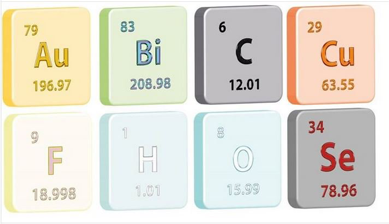
The In My Element series celebrates the personal accounts from Chemistry – A European Journal Editorial Board members on their favorite element for the 2019 International Year of the Periodic Table (IYPT 2019).
The first group of articles is now available, find out more.
David Spichiger, SCS
14.12.2018
SCNAT Newsletter, Dezember 2018
Klimapolitik: Antworten aus der Wissenschaft
Pünktlich zur Wintersession des Schweizer Parlaments und zur Klimakonferenz in Polen beantwortet die Broschüre vom Forum für Klima und globalen Wandel die wichtigsten Fragen zu Klimawandel, Klimapolitik und Emissionsminderung.
Weiter
Inakzeptable Eingriffe in die menschliche Keimbahn
Die Genom-Editierung in der menschlichen Keimbahn, wie sie kürzlich ein chinesischer Forscher angewandt haben soll, ist für die Akademien der Wissenschaften Schweiz gesundheitlich inakzeptabel und ethisch bedenklich.
Weiter
Das Naturama Aargau erhält den Prix Expo 2018
Die SCNAT verleiht dem Naturama Aargau für seine Ausstellung «Fragile» den Prix Expo 2018. Die Schau befasst sich auf fesselnde Art mit wissenschaftlichen Sammlungen und bringt Kostbarkeiten ans Licht, die sonst im Verborgenen lagern.
Weiter
Nominieren Sie eine historische Stätte der Chemie als Chemical Landmark
Mit dem Chemical Landmark zeichnet die SCNAT bedeutende historische Stätten der Chemie in der Schweiz aus. Denn das Land verdankt der Chemie, ihren Entdeckungen und Forschungserfolgen und der daraus entstandenen Industrie einen grossen Teil seines Wohlstands. An berühmte Chemikerinnen und Chemiker und ihre Errungenschaften und Wirkungsstätten will der Preis erinnern. Nominieren Sie jetzt einen solchen Ort als Chemical Landmark! Eine Jury aus Chemikern, Chemieingenieuren und Wissenschaftshistorikern bewertet die Vorschläge und kürt den Gewinner.
Weiter
Gemeinsam lernen, um zu verändern: Partnerschaften mit Entwicklungsländern
Die Akademien der Schweiz pflegen mit vielen Ländern langjährige wissenschaftliche Beziehungen. Eine besondere Bedeutung haben Partnerschaften mit Entwicklungsländern. Gerade dort liegt noch viel Wissenspotenzial brach. Was diese Zusammenarbeit neben dem wissenschaftlichen Austausch umfasst, erläutert Marcel Tanner, Präsident der SCNAT und ehemaliger Direktor des Schweizerischen Tropen- und Public-Health-Instituts, am 13. Dezember in Bern.
Weiter
Potenzial und Risiken von Geoengineering
Die 69. Ausgabe des ProClim-Flash, der Schweizer Zeitschrift für Klima und globalen Wandel, beschäftigt sich aus verschiedenen Perspektiven mit den Thema Geoengineering: Wo liegen die Potenziale, Risiken und Kosten der einzelnen Methoden? Und wie sieht es aus, wenn sich die Ethik zu Geoengineering äussert? In der Ausgabe finden Sie ausserdem Artikel zu zukunftsfähigem Wohnen und zum neuen IPCC-Sonderbericht zu 1,5 °C sowie das Neuste aus dem ProClim-Netzwerk.
Weiter
Inadequate science evaluation: a call for change, also in research culture
Current metrics do not measure and therefore do not reflect scientific quality. The h-Index and journal impact factor are pseudo-objective and unhealthy for research. These are the conclusions of an international conference organized by SCNAT in Bern. Accordingly, broader portfolio approaches are needed that also take into account alternative criteria such as outreach, managerial, mentoring or teaching skills. Defining meaningful and discipline-specific indicators requires co-design by producers and users of evaluation results. Enhancing science assessments needs changes in research culture. Changing metrics requires concerted global action by science stakeholders, namely in relation to the private sector providers of metric and ranking systems.
More
«Biodiversität ist unsere Lebensgrundlage»
Trotz Biodiversitätskonvention der Uno: Weltweit nimmt die Artenvielfalt weiterhin ab. Auch in der Schweiz sind mehr als ein Drittel der Tier- und Pflanzenarten bedroht. Was läuft schief beim Artenschutz? Markus Fischer, Präsident des Forums Biodiversität Schweiz, liefert Antworten im Tagesgespräch von Radio SRF 1.
Weiter
Science on stage: vier Schweizer Projekte in Portugal
Die Schweiz ist am europäischen Festival «Science on stage» 2019 Cascais (Portugal) mit vier Projekten vertreten. Das Ziel von Science on stage ist die Förderung des naturwissenschaftlich-technischen Unterrichts. Für die nationale Auswahl hatten Lehrerinnen und Lehrer aller Schulstufen und Landesteile Beiträge eingereicht. Eine Jury hat die besten ausgewählt. Gewinnerinnen und Gewinner werden ihre Projekte nun im Herbst 2019 in Portugal präsentieren.
Weiter
Out of Laboratories: research partnerships in a changing world
How have transboundary research partnerships evolved over the last decades and what are important milestones looking ahead into the future? A short video produced by the Commission for Research Partnerships with Developing Countries (KFPE) shows the major developments.
More
SCNAT-Präsident Marcel Tanner ausgezeichnet
Die Afrikanische Akademie der Wissenschaften (AAS) hat den Präsidenten der SCNAT, Marcel Tanner, zu ihrem Mitglied gewählt. Laut AAS trug der Epidemiologe und Parasitologe massgeblich zur wissenschaftlichen und technischen Entwicklung Afrikas bei. Tanner forschte unter anderem über die von Tsetsefliegen übertragene Schlafkrankheit. Er macht sich für einen ganzheitlichen Ansatz stark, um Krankheiten in Entwicklungsländern zu bekämpfen. Als langjähriger Direktor baute er das Schweizerische Tropen- und Public-Health-Institut zu einer global tätigen und interdisziplinären Institution um. Er war Ko-Präsident der Kommission für Forschungspartnerschaften mit Entwicklungsländern der SCNAT. Seit 2016 präsidiert er die SCNAT.
Weiter
Das Nagoya-Protokoll und die Schweiz: Wer ist betroffen? Was ist zu tun?
Das Nagoya-Protokoll regelt den weltweiten Zugang zu genetischen Ressourcen und die ausgewogene und gerechte Aufteilung der Vorteile, die sich aus ihrer Nutzung ergeben. Am 24. Januar 2019 können sich Betroffene in Zürich über die gesetzlichen Pflichten in der Schweiz informieren. Nehmen Sie sich zwei Stunden Zeit und erfahren Sie mehr zum Stand der Umsetzung. Lernen Sie aus Fallbeispielen und Anwendungstools und tauschen Sie sich mit anderen Betroffenen oder Vertreterinnen und Vertretern von Behörden und Verbänden aus. Anmeldung bis 14. Januar 2019.
Weiter
Die Verwandlung von Big Science – wie sich die teuersten Forschungsprojekte öffnen
Was könnten wir mit zehn Milliarden machen? Olympische Spiele finanzieren oder einen Flughafen? Einen Staudamm oder einen Flugzeugträger? Oder doch eher ein futuristisches Weltraumteleskop? Die aktuelle Ausgabe des Forschungsmagazins «Horizonte» liefert die Antworten.
Weiter
Let’s make small changes today for a better research culture tomorrow
Research culture describes the behaviours and values that shape our research communities which ultimately affect how research is done and how it is communicated. SCNAT has developed the “We Scientists 2035” workshops to inspire positive changes in our daily research environments. Through discussions and brainstorming activities, you will be equipped to start with small positive changes tomorrow. The next workshop with 2017 Nobel prize laureate for chemistry Jacques Dubochet and scientist, entrepreneur and fellow to the Global Futures Council (World Economic Forum) Simone Schürle will take place 7 February 2019 at University of Lausanne.
More
Is scientific merit (gender) biased?
How do (gender) biases influence the evaluation and selection of scientists? How (gender) biases can be addressed and how their influence on selection processes can be reduced? As part of the LS2 Annual Meeting 2019 of Life Sciences Switzerland on 15 February 2019 in Zurich this session would like to explore how gender biases influence the evaluation of merit and thereby the outcome of selection processes in academia and elsewhere and how these can be addressed.
More
Schweizer Forschende, vernetzt euch weltweit!
Der Schweizerische Nationalfonds (SNF) unterstützt mit seinem Programm «Scientific Exchanges» Schweizer Forschende, die eine wissenschaftliche Veranstaltung in der Schweiz organisieren, ausländische Kolleginnen und Kollegen für einen Forschungsaufenthalt in die Schweiz einladen oder sie im Ausland besuchen möchten. Im Rahmen von Scientific Exchanges fördert der SNF auch Anlässe zum Management und öffentlichen Zugang von Forschungsdaten.
Weiter
Akademie der Naturwissenschaften Schweiz (SCNAT)
Haus der Akademien | Laupenstrasse 7 | 3008 Bern
Andres Jordi | Tel. 031 306 93 23 | www.scnat.ch
Fragen und Anregungen:
David Spichiger, SCS
31.07.2012
ChemistryViews: Advent calendar and Christmas present
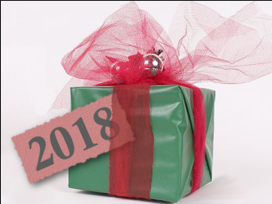 Searching for Christmas Presents?
Searching for Christmas Presents?
It is that time of the year again: The holiday season has started. If you are still searching for the perfect present for the chemists or science fans among your friends, family, or colleagues, we can help: ChemistryViews.org and Wiley/Wiley-VCH Editors recommend science-themed presents.
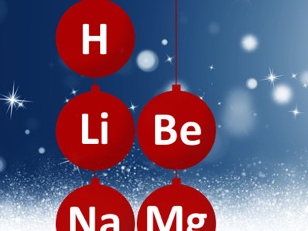 Chemistry Advent Calendar 2018
Chemistry Advent Calendar 2018
Daily highlights from the periodic table of the elements: 2019 has been declared the International Year of the Periodic Table of the Elements (IYPT 2019). Prepare for the IYPT with this calendar of chemistry highlights covering, for example, the discovery of elements, trends in the periodic table, and poems about the elements.
David Spichiger, SCS
04.12.2018
Page 72 of 299

